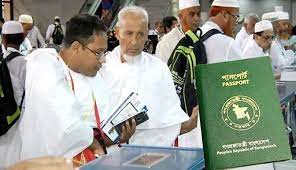Introduction
Saudi Arabia is renowned for being the home of Islam’s two holiest cities, Mecca and Medina. Every year, millions of Muslims from around the world embark on a spiritual journey known as the Hajj pilgrimage, a mandatory act of worship for all able-bodied and financially capable believers. Obtaining a Saudi visa for pilgrims is an essential requirement for participating in this sacred journey. This essay will delve into the intricacies of the Saudi visa process, its importance in ensuring a smooth pilgrimage experience, and the efforts made by the Saudi government to facilitate this process.
The Essence of the Hajj Pilgrimage
The Hajj pilgrimage is an undertaking of utmost importance for Muslims, providing an opportunity for spiritual purification and reconnection with Allah. Pilgrims gather in Mecca for several days of ritual activities that retrace the actions of the Prophet Muhammad during his final pilgrimage. The journey also fosters unity among Muslims, with people from diverse backgrounds collectively undertaking this holy obligation.
Obtaining a Saudi Visa
The Saudi visa process for pilgrims involves several steps. Initially, individuals must be nominated by their respective countries, typically through government-registered Hajj agencies. Nominees then undergo a strict background check by Saudi authorities to ensure they meet the proper criteria for pilgrimage. The next step is to submit the necessary documents, such as a valid passport, vaccination certificates, and evidence of financial capability. Once approved, individuals receive a visa and are officially permitted to enter Saudi Arabia.
Importance of the Saudi Visa
Securing a Saudi visa for pilgrims is crucial in ensuring the safety and well-being of all participants. The visa acts as a pass to access the holy cities during the pilgrimage period, enabling individuals to engage in the prescribed rituals. Additionally, the visa helps regulate the number of pilgrims to maintain order and manage the massive influx of people within limited physical spaces.
Efforts by the Saudi Government
Recognizing the significance of the Hajj pilgrimage, the Saudi government has made considerable efforts to facilitate the visa process for pilgrims. They have established an electronic system called “E-Hajj” that streamlines the application procedure, centralizing all relevant information and making it easily accessible to both pilgrims and officials. Consequently, this advancement has significantly reduced processing time and improved overall efficiency.
Ensuring Security and Safety
Another crucial aspect of the visa process is maintaining the security and safety of pilgrims. Saudi authorities employ SAUDI VISA FOR CANADIAN CITIZENS numerous measures for this purpose, including careful background screenings and passport validity checks. These precautions help prevent potential security threats and ensure a peaceful and harmonious pilgrimage experience for all participants.
Medical Requirements
To prevent the spread of infectious diseases, the Saudi government enforces strict medical requirements for obtaining a visa. Pilgrims are obliged to undergo specific vaccinations, primarily focusing on diseases prevalent in the region. These precautions safeguard the health of both pilgrims and the local population, minimizing the risk of outbreaks during the mass gathering.
Conclusion
The Saudi visa for pilgrims is an essential component of the Hajj pilgrimage, ensuring that participants can undertake their spiritual journey safely and smoothly. The Saudi government’s efforts to facilitate the visa process have made it more efficient and accessible, while still maintaining necessary security checks. By upholding medical requirements, Saudi Arabia demonstrates its dedication to safeguarding the health and well-being of all those partaking in the pilgrimage. Overall, the visa process plays a crucial role in upholding the sanctity, security, and unity of the Hajj pilgrimage.














